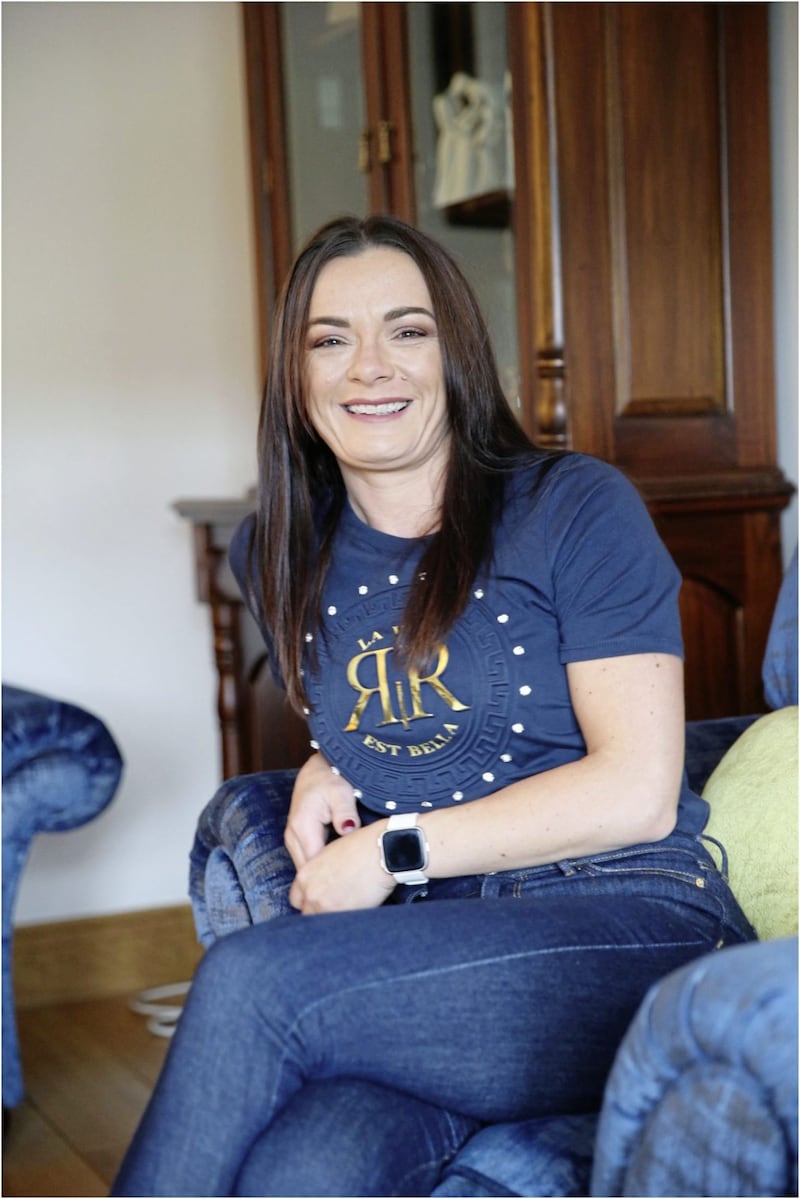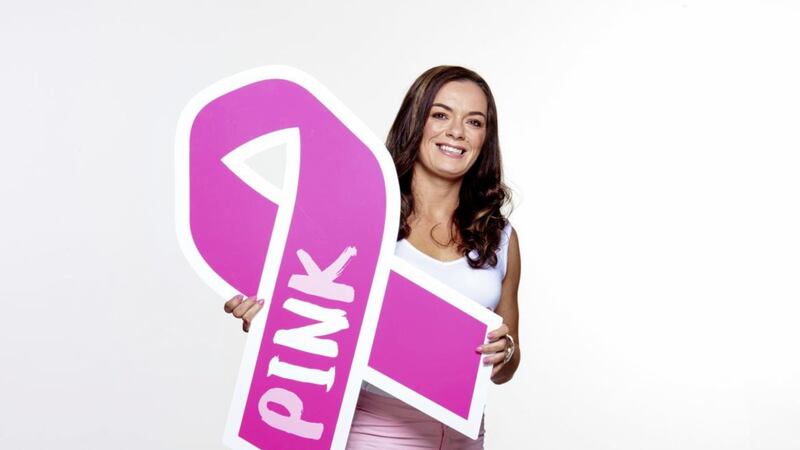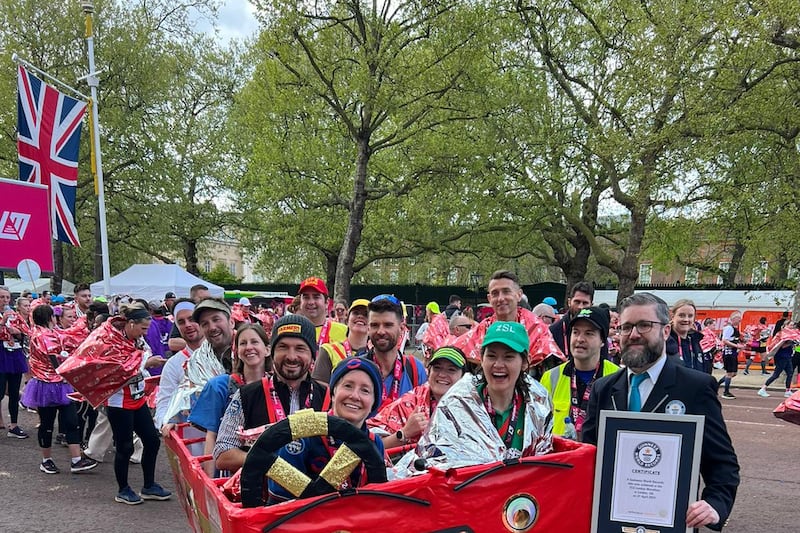WHEN Newry woman Joanne Clarke found out that she carried a BRCA2 gene mutation that placed her at higher risk of developing breast or ovarian cancer, she made the decision straight away to undergo preventative surgery.
The discovery that she was a carrier was made almost by accident – a year on from the death of her mum Anne, at the age of 68.
Anne had been given three unrelated breast cancer diagnoses when she was 51, 55 and 64 years of age. Unfortunately, the third time, the cancer had spread to her liver and she faced a gruelling journey of treatment involving radiotherapy and chemotherapy before she passed away in 2013.
Joanne knew her mum had been adopted so had no idea about her birth family's medical history. As a result of this lack of information and because her mum had been 50 when she was first diagnosed with cancer, Joanne was initially refused testing for the faulty BRCA gene.
But she kept persevering and with the help of a genetics counsellor, Joanne was finally tested as part of a research programme. Her mum's blood had been taken and kept in storage in a genetics lab, which allowed the testing to go ahead. A year later, at the age of 38, Joanne was told she was a carrier of the faulty gene and immediately she knew what she wanted to do.

“Having watched what my mum went through three times, there was no way I was going to let cancer get me,” says Joanne, who is aged 42 and mum of Anna (15) and 12-year-old Ellen.
“I have a husband and two young daughters who need me. I wouldn't want them to watch me going through that. And of course, I want to be around to help them grow up.
“When I found out I had the BRAC2 gene I wasn't that shocked. I pretty much took it on the chin. My husband Adrian found it harder to deal with it, to be honest.
“But what did make me angry is that my mum had never known she had it. If she'd been tested at some stage and found out she was a carrier, she could've done something about it and would still be here. But I was in a position where I could do something about it, so the decision was made. It wasn't a difficult one.”
In October 2015, a year on from the BRAC2 mutation discovery, Joanne, an architect, underwent surgery to have her fallopian tubes removed. At this stage she decided not to go ahead with a full hysterectomy as she was only 38 at the time and didn't want to go into early menopause. In December the same year, she had a double mastectomy.
The following year she had to undergo two more operations – corrective breast surgery and a full hysterectomy.
“Within a two-year period I had four operations but I've absolutely no regrets,” Joanne says. “I decided to go for the full hysterectomy after all. I just didn't want to take any risks and wanted to give myself the best possible chance of not getting cancer, so I had my ovaries removed too.
“It was tough for a year or two, really tough. I had to deal with the symptoms of early menopause and there were times I didn't really feel like me any more. I felt almost empty.
“Having the full hysterectomy and going into menopause was actually harder on me than the breast surgery.”
Although Joanne received pre-surgery counselling and was guided through each step, she felt at a loss afterwards.
“I'd been so consumed by it all; but after all the surgery I felt a bit like I'd been cut loose and set adrift,” she says. “I did get quite down and depressed.
“It definitely took me a good year to start to feel better and more like myself. Exercise had always been a big part of my life so I went to the gym, got out walking and did yoga to help me de-stress. I feel much better now.”
Joanne feels very strongly that that it shouldn't have been so difficult for her to 'tick all the right boxes' and get the gene testing done and wants to see the criteria change. Had she not persisted with her demands to have the genetic testing carried out, she might never have known she was a carrier and her daughters wouldn't be eligible for testing later on. This is something which doesn't bear thinking about, she says.
“My girls are still young and may have a similar decision to make – there's a 50/50 chance I've passed the gene on to them,” she says. “But I'm hoping by the time they are older they will have much better options available to them.”
This is why Joanne feels it is vital that more awareness and funds are available for further research into cancer and the BRCA genes and why she's so supportive of Cancer Focus Northern Ireland's new fund raising campaign, 'Support Your Girls'.
The campaign will run throughout October, breast cancer awareness month, and the charity is asking women to hold a fun girls’ night in to raise money for breast cancer support for younger women in Northern Ireland.
The campaign will also highlight signs and symptoms of the disease and stress the importance of checking your breasts regularly.
“It’s my children’s generation who will benefit from new discoveries. It is the only way to stop this devastating gene from being passed down through generations so I appeal to everyone to help Cancer Focus NI raise funds for research this October.
“I'll be organising my own event at home, a movie night, with all the guests dressed in pink. Having lost my own mum to breast cancer, I think it's important that I support Cancer Focus NI and the good work they are doing to raise money to carry out vital research.”
Rosie Forsythe, community fundraising manager at Cancer Focus NI, said: “One in 10 women in Northern Ireland are diagnosed with breast cancer, which is a huge number – it could be your mum, your sister, your wife, your granny or your friend.
“We know that there is a great need for more support among younger women who have breast cancer. With the money raised from the girls' night in events, we plan to facilitate and fund a unique new service that will give them a chance to speak to speak to experts on a wide range of topics such as infertility and sexual relationships as well as to meet others in a similar situation.
“The young women we are helping are at a stage in their lives where they may be considering big life changes such as marriage and starting a family. A breast cancer diagnosis can dramatically change all their hopes and plans for the future. That is why we're asking you to have a girls' night in and raise money to help us provide the support they need.”
Joanne says: "Some women carrying the gene have regular MRI scans and check for lumps or changes to their breasts. But having preventative surgery was the best decision for me."








